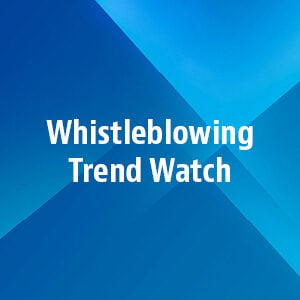It has been a busy month for online content regulatory development in Australia. Following on from recent major developments for online safety (reported on here: https://insightplus.bakermckenzie.com/bm/data-technology/australia-moves-on-online-safety), further significant changes in the Australian regulatory regime for online content are on the horizon:
These reform proposals reflect the Australian Government’s current focus on modernising the Australian media and online content regulatory frameworks on a number of fronts.
The revised classification regime could provide welcome opportunities for content providers to expedite classification of their content and avoid double handling. However, a number of key recommendations from recent reviews into Australian classification laws have not yet been picked up in the draft legislation, with a second phase of reforms aimed at more comprehensive reform to the scheme still anticipated. It is likely that public comment on the second-phase reforms will commence later this year.
Gaming service providers will need to closely consider the ramifications of the proposed changes for gambling-like features.
The proposed expansion of the ACMA’s powers on misinformation and disinformation has the potential to bring significant changes. Digital platform providers should examine the potential implications of the proposed expansion of the ACMA’s powers for their business and the wider industry, and take the chance to have their say by contributing to the consultation no later than 6 August 2023.
1. Proposed classification regulatory changes
Background
For a number of years, Australia’s classification regime has been criticised by many who argued that it is in need of a revamp in light of changing patterns of content dissemination and consumption, and underlying uncertainties and inconsistencies arising from the application of a scheme established in the 1990s to a significantly changed media environment some 30 years later. However, change has been a long time coming.
A number of review processes have occurred over the last 15 years or so, including a significant Australian Law Reform Commission review. Most recently, from 2019 – 2020, the Government conducted a consultation and review of the current classification regime (“Stevens Review“). It was not until 29 March 2023 that the report on the Stevens Review, including various recommendations for reform, was released.
Between May and June 2023, the Government consulted on proposed discrete updates to the Guidelines for the Classification of Computer Games aimed at addressing growing community concerns around gambling-like features in computer games (“Loot Box Consultation“).
On 22 June 2023, the Government introduced broader reform proposals to Parliament, in the shape of the Classification (Publications, Films and Computer Games) Amendment (Industry Self-Classification and Other Measures) Bill 2023 (“Classification Amendment Bill“).
Outline of proposed reforms
To respond to concerns around harms associated with games which contain gambling-like elements, the Loot Box Consultation proposed updating the Guidelines for the Classification of Computer Games, to:
In the Classification Amendment Bill, the Government addresses several of the recommendations from the Stevens Review. The Bill makes a number of key changes:
However, a number of other major proposals from the Stevens review are yet to be addressed – including, for instance, recommendations to limit the scope of material subject to review under the National Classification Scheme (as opposed to the related Online Safety Act 2021 (Cth)) to professionally produced content that is distributed on a commercial basis and directed at an Australian audience. Minister Rowland has announced that a second phase of reforms to the National Classification Scheme will involve a more comprehensive reform process “including potential changes to clarify its purpose and scope, and establish fit-for-purpose regulatory and governance arrangements”. It is anticipated that public consultation on these broader reforms will commence later in 2023.
2. Proposed misinformation and disinformation regulatory changes
The Australian Government released its exposure draft of the Communications Legislation Amendment (Combatting Misinformation and Disinformation) Bill 2023, with an accompanying guidance note and fact sheet, on 24 June 2023 (“Draft Misinformation Bill“).
Background
Many digital platforms are currently signatories to the voluntary Australian Code of Practice on Disinformation and Misinformation (“Disinformation Code“). Since its launch in February 2021, signatories to the Disinformation Code have committed to safeguards to protect Australian users from harm associated with misinformation and disinformation and promised to issue annual transparency reports on their progress.
In June 2021, the ACMA reported on the adequacy of digital platforms’ disinformation and news quality measures, making a range of recommendations, including that the Government provide the ACMA with reserve regulatory powers in relation to digital platforms, such as code registration powers and the ability to set standards, so that the action could be taken quickly to address potential harms if platform responses were not adequate or timely. In the Draft Misinformation Bill, the government is putting forward proposals to implement this recommendation.
Key proposals
The Draft Misinformation Bill empowers the ACMA to:
Application and scope
The Draft Misinformation Bill would capture and apply to providers of “digital platform services”, covering content aggregation services, connective media services (with a primary function of enabling online interaction between two or more end-users), media sharing services and other digital services specified by the Minister. Notably, providers of internet carriage services, MMS services and SMS services would be excluded.
As to scope, the new regulatory regime relates specifically to content which is “misinformation” and “disinformation”. Broadly, misinformation contains information that is false, misleading or deceptive, is provided on a digital service to one or more end-users in Australia and is reasonably likely to cause or contribute to serious harm. Disinformation is misinformation which a person disseminates with the intention to deceive another person. Both definitions import important concepts of harm.
Consequence of breach
Under the Draft Disinformation Bill, digital platforms which do not comply with applicable Digital Platform Rules, codes and/or standards could face a range of enforcement action, including formal warnings, remedial directions requiring the provider to take specified action and civil penalties which could be imposed via an infringement notice or a court. Contravention of a standard or associated remedial directions would attract the highest civil penalty, the greater of 25,000 penalty units – equating to AUD 7,825,000 as at the date of this alert – or 5% of the annual turnover of the contravening body corporate, which is calculated generously to include relevant group global revenues. Giving false or misleading information or evidence to the ACMA would be a criminal offence, subject to a penalty of imprisonment for 12 months.
* * * * *
With thanks to Milena Mitic (Junior Associate) and Liz Grimwood-Taylor (Senior Knowledge Lawyer) for preparing this alert.
Adrian Lawrence is the head of the Firm’s Asia Pacific Technology, Media & Telecommunications Group. He is a partner in the Sydney office of Baker McKenzie where he advises on media, intellectual property and information technology, providing advice in relation to major issues relating to the online and offline media interests. He is recognised as a leading Australian media and telecommunications lawyer.
Andrew Stewart leads the Intellectual Property & Technology Practice Group in Australia and the Firm’s Global Digital Media & Copyright Content practice Business Unit. He is also a member of the Firm’s Asia Pacific Intellectual Property & Technology Steering Committee. Andrew has significant in-house experience in one of Australia’s most successful television networks, giving him an insight into the media environment in Australia and is an advisory board member of the Melbourne University Centre for Media and Communications in the Law.
Allison Manvell is a special counsel in the Technology, Communications and Commercial, and Media & Content, teams at Baker McKenzie. Allison works across Baker McKenzie’s Sydney and Brisbane offices. Allison has more than ten years’ experience advising on commercial and regulatory matters across a range of industries with a particular focus on digital media, technology, broadcasting and content licensing and regulation. Allison has also spent time on client secondment within the media industry. She is a member of the Communications and Media Law Association and she speaks and presents regularly on legal issues relevant to convergence and digital media.
You must be logged in to post a comment.



© Copyright 2023 – Global Compliance News
Australia: Online content regulatory wrap-up – GlobalComplianceNews

